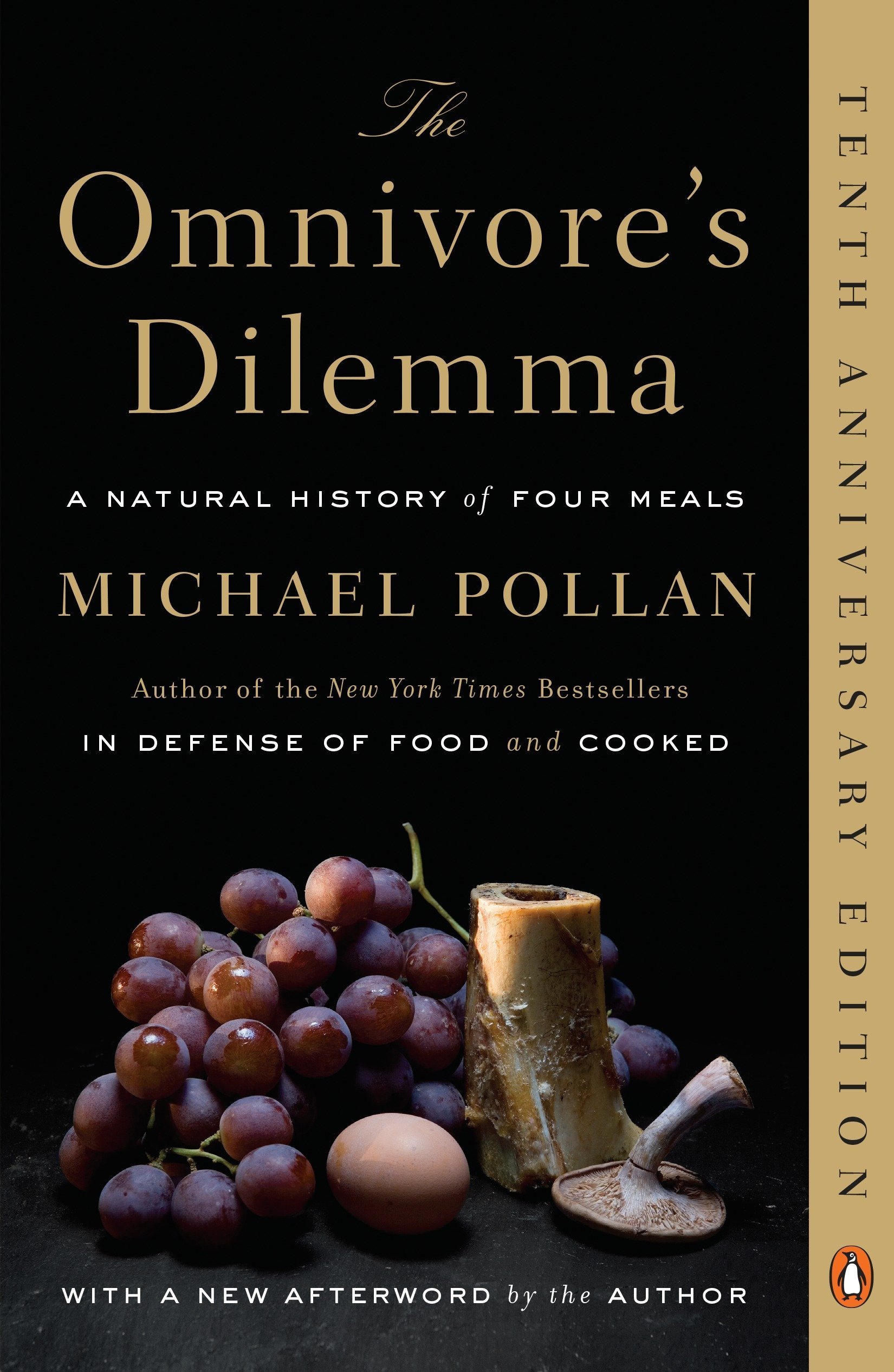The Omnivore’s Dilemma
“Were the walls of our meat industry to become transparent, literally or even figuratively, we would not long continue to raise, kill, and eat animals the way we do.”
In the book, Michael Pollan traces the history and ingredients of four different meals: one from McDonald's, one from Whole Foods market, one from a small farm in Virginia, and one composed of ingredients that he gathered (and killed) on his own. The meal from McDonald’s (about 70% of which is derived from corn) allows him to take a trip down the rabbit-hole into the world of high fructose corn syrup and the massive, genetically-modified mono-farms that produce the majority of corn in this country. The Whole Foods meal is obviously a step up from this, although here Pollan explores the conundrum of eating organically if that means flying peaches in from Chile in December. This section of the book does a fine job explaining that “organic” does not necessarily mean sustainable. Next Pollan spends a week on a farm in Virginia that serves in many ways as an idyllic model for where to get your food. Finally, in a section that is as much “adventure series” as it is agricultural critique, Pollan creates a gourmet meal for his friends using only items he gathered himself, including bread made with yeast collected from his backyard and sea salt procured from the Northern California coast on which he lives.
Hunting and gathering all of your own food these days may seem unfeasible, especially to create the kind of elaborate feast Pollan does. (Although Stearns provides the opportunity to get much closer to that goal). However, even if you are unable to rustle around in the woods for wild boar or visit a fire-blackened forest to pick morel mushrooms, as Pollan does, you will come away from the book re-energized with the commitment to eat locally and sustainably. Pollan may not have deliberately set out to promote CSAs such as Stearns Farm, but that is a happy side benefit of the work. He also writes sensitively and without a sense of moral superiority—it can feel unusual to read a book on this subject that doesn't make you feel bad about yourself. And yet, the information Pollan presents simply and persuasively will compel you to both thought and action, making The Omnivore’s Dilemma an excellent read and great inspiration for the next time you are out in the pick-your-own beds, gathering food for your family’s dinner. However I did not like how quickly he gave up on vegetarianism in order to write this book.
